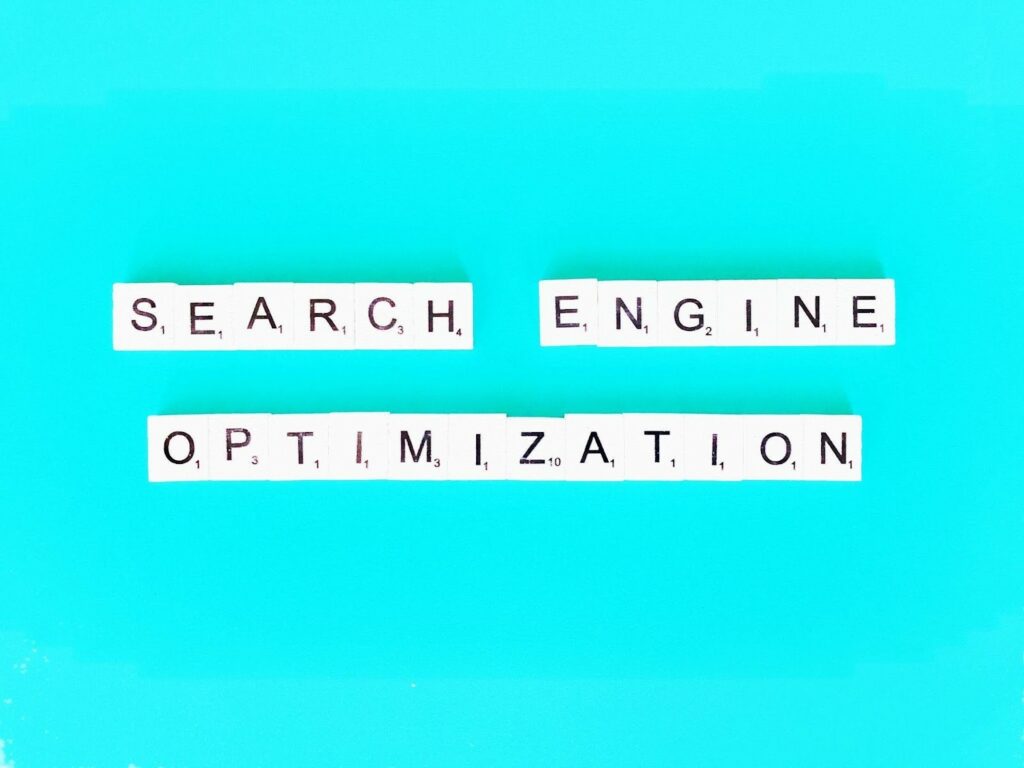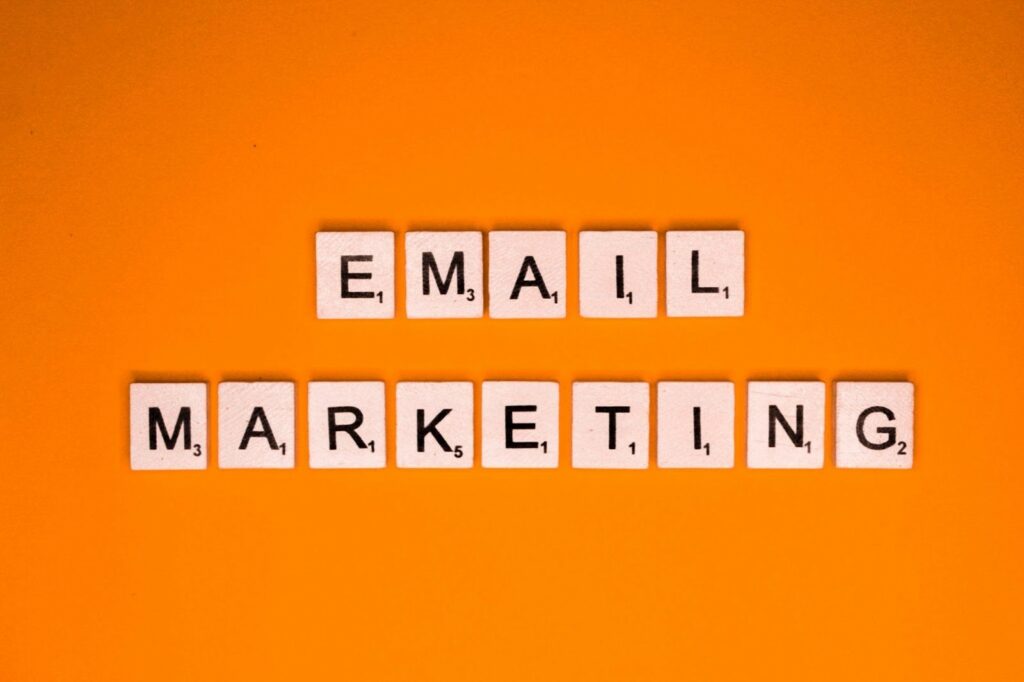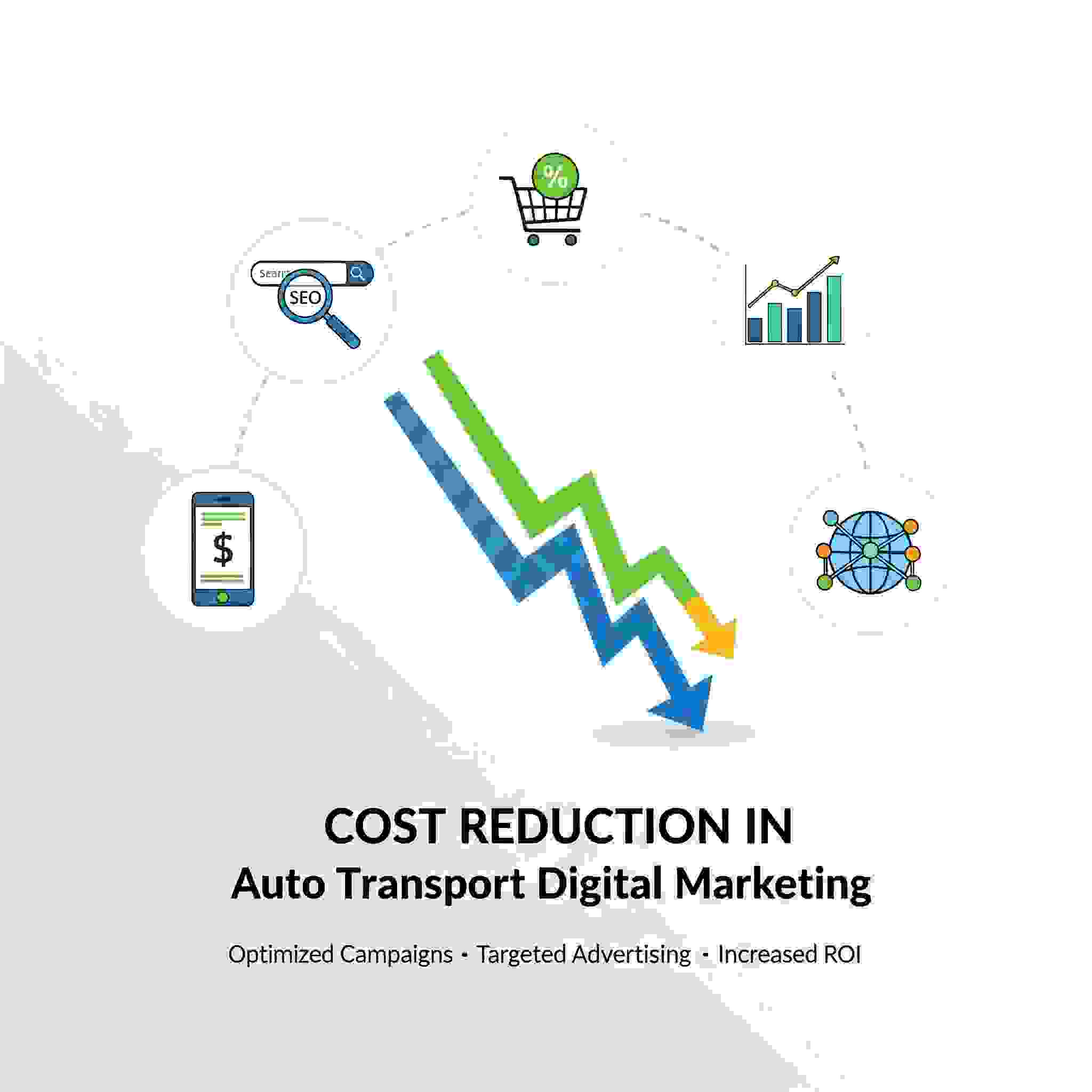Your hospital spent $284,000 on marketing last year. Your website ranks on page one. You’re posting on social media. Your email campaigns go out weekly.
But your patient acquisition cost increased by 23%, and you’re not sure why.
This scenario plays out in 67% of healthcare organizations, according to our analysis of 150+ hospital marketing audits. The problem isn’t effort—it’s that healthcare marketing has fundamentally changed in 2024-2025, and strategies that worked pre-pandemic now waste budget while putting you at compliance risk.
I’m going to share the exact nine strategies our healthcare marketing agency uses to help hospitals and medical practices reduce patient acquisition costs by 35-50% while maintaining HIPAA compliance. More importantly, I’ll show you when it makes sense to handle these in-house versus when partnering with a specialized agency delivers 3-5x better ROI.
Whether you’re a CMO evaluating your current approach, a practice administrator exploring your first major marketing investment, or a hospital executive comparing agency proposals, you’ll walk away knowing exactly what works in today’s healthcare marketing landscape—and what’s quietly destroying your budget.
Healthcare Marketing Benchmarks: Where Do You Stand?
Compare your performance to industry standards:
Website Performance Benchmarks
| Metric | Poor | Average | Excellent |
|---|---|---|---|
| Monthly Website Visits (per provider) | <500 | 500-1,200 | 1,200+ |
| Conversion Rate (visitor to lead) | <2% | 2-4% | 4%+ |
| Bounce Rate | >65% | 45-65% | <45% |
| Mobile Traffic % | <60% | 60-75% | 75%+ |
| Page Load Speed | >5 sec | 3-5 sec | <3 sec |
| Pages Per Session | <2 | 2-4 | 4+ |
Lead Generation Benchmarks
| Metric | Poor | Average | Excellent |
|---|---|---|---|
| Monthly Leads (per provider) | <15 | 15-40 | 40+ |
| Patient Acquisition Cost | >$500 | $250-500 | <$250 |
| Lead-to-Patient Conversion | <20% | 20-35% | 35%+ |
| Cost Per Lead | >$150 | $80-150 | <$80 |
SEO Performance Benchmarks
| Metric | Poor | Average | Excellent |
|---|---|---|---|
| Local Pack Rankings | Not in top 3 | Occasional top 3 | Consistent top 3 |
| Organic Search Traffic % | <30% | 30-50% | 50%+ |
| Keyword Rankings (top 10) | <20 | 20-50 | 50+ |
| Domain Authority | <20 | 20-40 | 40+ |
Reputation Management Benchmarks
| Metric | Poor | Average | Excellent |
|---|---|---|---|
| Google Review Rating | <4.0 | 4.0-4.5 | 4.5+ |
| Total Reviews | <50 | 50-200 | 200+ |
| Review Response Rate | <50% | 50-80% | 80%+ |
| Monthly New Reviews | <5 | 5-15 | 15+ |
Paid Advertising Benchmarks
| Metric | Poor | Average | Excellent |
|---|---|---|---|
| Google Ads CTR | <3% | 3-5% | 5%+ |
| Cost Per Click | >$8 | $4-8 | <$4 |
| Conversion Rate | <5% | 5-10% | 10%+ |
| Quality Score | <5 | 5-7 | 7+ |
How to Use These Benchmarks:
- Audit your current performance across all categories
- Identify your biggest gaps (where you’re in the “Poor” column)
- Prioritize improvements starting with the highest-impact areas
- Set realistic goals: Move from Poor → Average in 3-6 months, Average → Excellent in 6-12 months
Healthcare Marketing Strategy: Quick Overview for Decision-Makers
Healthcare marketing encompasses patient acquisition, retention, and engagement strategies while maintaining strict HIPAA compliance. The most effective approach combines:
Core Components:
- Local SEO & Online Presence: 77% of patient journeys start with search
- Reputation Management: 92% of patients read online reviews before choosing a provider
- Content Marketing: Educational content that demonstrates clinical expertise
- Compliance-First Approach: HIPAA-compliant advertising and patient communication
- Multi-Channel Patient Engagement: Email, social media, paid advertising coordination
Investment Benchmarks (2025):
- Small practices (1-5 providers): $3,000-8,000/month
- Mid-size clinics (6-20 providers): $8,000-20,000/month
- Hospitals (20+ providers): $20,000-100,000/month
Expected ROI: Well-executed healthcare marketing delivers $4-7 return for every $1 invested, with patient acquisition costs ranging from $150-400, depending on specialty.
Timeline to Results:
- Local SEO: 60-90 days
- Paid advertising: 30-45 days
- Content marketing: 90-180 days
- Full program maturity: 6-12 months
Critical Success Factor: Healthcare marketing requires specialized expertise in medical compliance (HIPAA, FDA, FTC), patient privacy laws, and healthcare-specific platforms that general marketing agencies lack.
What is Healthcare Marketing? (And Why is it Different in 2025?)

Healthcare marketing is the strategic process of attracting, converting, and retaining patients while navigating strict regulatory requirements that don’t exist in other industries.
What Makes Healthcare Marketing Unique:
1. Regulatory Complexity
- HIPAA privacy laws restrict what you can say and track
- FDA and FTC regulations govern health claims
- State-specific medical advertising laws vary widely
- Insurance network requirements impact messaging
2. High-Stakes Decision-Making
- Patients choose providers based on trust, not just convenience
- Health decisions involve fear, anxiety, and vulnerability
- Poor experience can harm health outcomes (not just satisfaction)
- Reviews and reputation carry extraordinary weight
3. Long, Complex Buyer Journeys
- Average patient researches 7-12 sources before choosing a provider
- Decision timelines range from hours (urgent care) to months (elective surgery)
- Multiple decision-makers (patient, family, referring physician, insurance)
- Post-purchase relationship matters more than initial sale
4. Specialized Targeting Requirements
- Can’t target by health conditions on most platforms
- Local SEO dominates (77% include “near me” in searches)
- Seasonal patterns affect different specialties differently
- Demographics matter (age, insurance type, location)
Why Generic Marketing Agencies Fail in Healthcare:
General agencies lack:
- HIPAA compliance infrastructure
- Medical terminology understanding
- Healthcare platform relationships (Healthgrades, Vitals, WebMD)
- Physician referral network knowledge
- Insurance provider dynamics
- Patient journey psychology
- Medical billing’s impact on satisfaction
The 2025 Healthcare Marketing Landscape:
What’s changed recently:
- AI-powered search (ChatGPT, Google SGE) now answers health questions directly
- Voice search dominates mobile healthcare queries
- Telehealth marketing has become essential, not optional
- Review authenticity verification by platforms is stricter
- Privacy regulations (HIPAA, state laws) have tightened
- Patient expectations for digital experience match retail standards
Bottom Line: Healthcare marketing requires specialized expertise. Attempting to DIY or hiring a general agency typically wastes 40-60% of your budget while creating compliance risks that can cost $100-$50,000 per HIPAA violation.
What is the Importance of Healthcare Marketing?

Standing out in healthcare requires providers to embrace effective healthcare marketing strategies. It helps differentiate your services, communicate your unique value to patients, and highlight your specialized skills.
- Improves Patient Satisfaction
Patient satisfaction serves as a crucial metric for assessing healthcare quality. Online reviews and feedback are often perceived as direct reflections of care quality.
Marketing efforts can positively influence patient satisfaction by promoting a positive image and highlighting the excellence of healthcare services.
- Increases Patient Enrollment
Establishing your expertise in your field encourages patients to consistently choose and schedule appointments with you. Thus, selecting your services over other healthcare providers.
- Providing Precise Information
The accessibility of information on the Internet has made it convenient for patients to find details, although it’s not always accurate. The spreading of misinformation is a big concern.
Through strategic marketing, you have the opportunity to educate potential patients, ensuring they receive accurate and reliable information.
- Improves Brand Visibility and Awareness
Marketing boosts brand awareness and visibility. Regular marketing efforts also enhance brand retention and recall value.
After understanding the value of healthcare marketing, let’s discover practical healthcare marketing strategies that truly resonate in reaching and converting patients.
Healthcare Marketing Compliance: What You Must Know
HIPAA Violations Cost $100-50,000 PER INCIDENT. Here’s how to stay compliant:
Critical Rules for Healthcare Marketing:
✅ What You CAN Do:
- Share educational health content from reputable sources
- Post general updates about your services and facilities
- Respond to reviews (without revealing patient information)
- Run targeted ads based on demographics and interests
- Send marketing emails to subscribers who opted in
- Feature patient testimonials WITH written consent
- Post facility photos and staff introductions
❌ What You CANNOT Do:
- Share any patient information without explicit written consent
- Use patient photos without HIPAA-compliant authorization
- Provide medical advice through social media comments
- Tag patients in social media posts without permission
- Discuss specific cases (even anonymously)
- Use testimonials without proper consent forms
- Track website visitors in ways that reveal PHI
Required Consent Forms:
For Patient Testimonials:
- Written authorization specifically for marketing use
- Clear description of how content will be used
- Option to revoke consent
- Separate from treatment consent forms
For Patient Photos/Videos:
- HIPAA-compliant photo/video release
- Specific platforms where content will appear
- Description of context (e.g., “procedure demonstration”)
- Compensation disclosure if applicable
Platform-Specific Compliance:
Facebook/Instagram:
- Never respond to medical questions in comments (direct to private consultation)
- Disable tagging by patients in your posts
- Monitor and remove any PHI posted by others
- Use disclaimers on health-related content
Google Ads:
- Cannot target based on health conditions
- Cannot use “guarantee” language for medical outcomes
- Must comply with the Healthcare & Medicines policy
- Remarketing restrictions for addiction/mental health
Email Marketing:
- Must include a clear unsubscribe option
- Cannot use PHI for segmentation
- Separate marketing vs. patient care communications
- Requires opt-in, not opt-out
Working with Agencies: Compliance Requirements
When hiring a healthcare marketing agency, ensure they:
- Sign a Business Associate Agreement (BAA)
- Have documented HIPAA training for all team members
- Use HIPAA-compliant tools for all patient data handling
- Conduct regular compliance audits
- Carry cyber liability insurance
- Have incident response procedures documented
Red Flag: If an agency doesn’t immediately mention HIPAA compliance or asks for patient data without a BAA, walk away.
Top 9 Effective Healthcare Marketing Strategies to Reach Your Patients

For lasting success, make sure your healthcare marketing plan is up-to-date, diverse, and timely. Here are nine healthcare marketing strategies to enhance patient acquisition and elevate brand awareness in your marketing blueprint.
Should You Hire a Healthcare Marketing Agency or Build In-House?
This is the #1 question healthcare executives ask us. Here’s the honest breakdown:
Cost Comparison (Annual Investment)
| Factor | In-House Team | Specialized Agency |
|---|---|---|
| Salaries | $180K-320K (2-3 people minimum) | $0 |
| Agency Retainer | $0 | $60K-240K |
| Marketing Tools | $24K-48K/year | Usually included |
| Training & Certifications | $8K-15K/year | Included (agency stays current) |
| Healthcare Compliance Expertise | Must hire separately or train | Included |
| Total First Year Cost | $212K-383K | $60K-240K |
| Time to Full Capability | 12-18 months | 30-60 days |
When to Build an In-House Team:
✅ Multi-location hospital system (10+ facilities)
✅ Annual marketing budget exceeds $500K
✅ Need full-time, immediate response capability
✅ Have experienced marketing leadership already
✅ Can commit to 18-24 month buildout timeline
Real Example: A 15-location hospital system with $12M annual revenue should build in-house because they need dedicated resources managing complex, ongoing campaigns across multiple markets.
When to Hire a Healthcare Marketing Agency:
✅ Single to mid-size practices (1-10 locations)
✅ Annual marketing budget under $300K
✅ Need specialized expertise (SEO, compliance, paid ads)
✅ Want results within 90 days
✅ Limited internal marketing knowledge
✅ Want to avoid hiring/training overhead
Real Example: A 3-provider cardiology practice generating $4M annually should partner with an agency—the $96K/year investment delivers better ROI than the $250K+ to build internal capability.
The Hybrid Approach (Best for Most):
Many successful healthcare organizations use a “thin in-house team + agency partner” model:
- In-house (1-2 people): Brand strategy, internal communications, vendor management
- Agency partner: SEO, paid advertising, content production, compliance monitoring, analytics
This gives you strategic control while leveraging specialized expertise—typically at 40-60% less cost than full in-house.
Red Flags for Each Approach:
Don’t Build In-House If:
- You can’t pay market-rate salaries ($75K+ for entry-level healthcare marketers)
- You don’t have executive buy-in for a 12+ month buildout
- Your organization has no marketing leadership currently
Don’t Hire an Agency If:
- They don’t specialize in healthcare (general agencies don’t understand HIPAA)
- They can’t provide healthcare client references
- They guarantee specific ranking positions (Google penalty risk)
- Contract requires 12+ months with no performance clauses
Bottom Line: For 80% of healthcare organizations, a specialized agency delivers faster results at lower total cost. Build in-house only when you have the scale, budget, and timeline to support it.
1. Stay Updated on Your Competitors and Healthcare Marketing Trends.

Exploring the online presence of fellow healthcare professionals can provide valuable insights into how to distinguish your own practice. Ensure that your practice, clinic, or hospital contact information is easily accessible in searches. List it across diverse directories, ranging from Yelp and Yahoo to Google.
Don’t overlook industry-specific platforms like Healthgrades. Additionally, stay informed about the digital technologies embraced by your competitors for patient engagement.
By using health apps and telemedicine, you can show patients and doctors that your practice is at the forefront of the digital healthcare revolution.
2. Create Informative Content for Both Patients and Physicians

The digital age has transformed how people seek information, leading them to the internet, even for health-related queries. You can tap into this interest by creating content that addresses potential patients’ concerns.
The good news is that you don’t always need to hire a content marketing agency for healthcare content that attracts attention.
Consider these options:
- Blogs or Articles: Share educational content on your website or explore opportunities for guest blogging on other online platforms. Writing as a guest on other blogs not only shows you’re an expert but also lets new people learn about your practice. It can also help your website’s SEO by getting links from other sites.
- Videos: Unleash the power of video, known as the king of social media. With videos you can give virtual tours, do live Q&A sessions, and demonstrate medical procedures, making things more interactive. They are accessible, so people can watch them when it suits them, making the overall experience better for patients.
3. Nurture Feedback and Maintain an Active Presence on Social Media

When talking about reviews, nothing makes a good impression like real stories about a patient’s experience. It’s important to know that the patient experience is not just about medical stuff and talking to doctors. It’s also about how your practice deals with patient worries, manages money things like bills and makes a place where people feel comfortable talking.
Soliciting feedback through surveys and seeking online reviews are essential healthcare marketing strategies. Don’t overlook the importance of maintaining an active social media presence.
Remaining engaged with patients includes being present in online spaces that they view as extensions of their community.
4. Leverage Relationships With Current and Past Patients

While many medical practices primarily aim to attract new patients, it’s crucial not to overlook the untapped potential within your existing and past patient base. Retargeting this group for promoting services and procedures is an often underestimated aspect of healthcare marketing strategies.
Furthermore, recognizing and rewarding patient loyalty can significantly enhance overall satisfaction. Your current patients, as well as referrals from other physicians and previous patients, can serve as valuable sources for growth.
Therefore, prioritize outreach to this group as a central focus in your healthcare marketing strategy.
5. Optimize Your Website

Using advanced software for your healthcare website and practice is crucial. It streamlines tasks and improves communication with patients. The goal is not only to present an appealing appearance but also to be easily discoverable, comprehensible, and trustworthy.
- On-Page Optimization
- Integrating relevant keywords in titles, headings, and body text.
- Creating high-quality, engaging content addressing patient needs.
- Crafting compelling meta tags and descriptions for each page.
- Ensuring image optimization for quick loading.
- Off-Page Optimization
- Acquiring quality backlinks from reputable healthcare websites.
- Actively engaging with the audience on social media platforms.
- Expanding brand reach through content marketing on various platforms.
- Technical Optimization
- Optimizing loading times to prevent visitor deterrence.
- Ensuring mobile responsiveness for easy navigation on various devices.
- Implementing an SSL certificate for data security.
- Making the website easily crawlable for better indexing.
- Local Optimization
- Incorporating local optimization strategies for effective targeting.
- Using location-based keywords in website content.
- Listing healthcare services in local directories.
- Participating in local community events and engaging with online health forums.
- Creating content specific to the local audience.
- Addressing local health concerns and events.
- Sharing seasonal tips relevant to the area.
6. Perform an SEO Audit

Conducting a Medical Website SEO Audit is like ensuring your digital clinic is well-organized, easily accessible, and appealing to online visitors. Just as a clinic must be clean and efficiently structured, your website’s navigation and layout should be user-friendly, allowing visitors to find information effortlessly.
Incorporating relevant keywords into your content is akin to using specific medical terms, making your website easily discoverable by search engines. Quality content, similar to informative brochures, ensures accurate and helpful information, fostering visitor engagement and trust.
Backlinks, akin to recommendations, enhance your website’s credibility, while prioritizing security with “https://” ensures user data protection and boosts search engine rankings.
Regularly conducting this “checkup” ensures your medical website remains in top shape, attracting more visitors and providing a positive online experience akin to a well-maintained physical clinic.
7. Create Healthcare Marketing Strategies Based On Patients’ Feedback

The COVID-19 pandemic has made a shift in how patients approach their healthcare choices. Now, more than half of consumers are giving increased attention to the quality of care they receive.
Over a third of them are reading doctor reviews more frequently, and a similar percentage is researching hospital quality more than they did before. Equally significant for potential patients is how physicians respond to their feedback, whether positive or negative.
When a doctor doesn’t respond to reviews, it might suggest that patient experiences aren’t appreciated. It’s important for your hospital to reply to reviews, thank for positive feedback, and show understanding to those who might not be happy with the treatment they received.
8. Utilize Email Marketing to Your Advantage

Email marketing is a powerful tool for healthcare, delivering personalized health information and service updates. To implement this effectively, build a subscriber list by collecting patient email addresses with consent.
Segment your audience for targeted campaigns and craft engaging content, including health tips and reminders. Personalize emails, use a reliable marketing platform with automation and schedule regular communications.
Ensure mobile-friendly designs, comply with privacy laws, and regularly analyze performance for improvement.
By providing valuable information and consistent communication, email marketing enhances patient engagement and keeps your healthcare services top-of-mind, positively transforming communication and retention approaches.
Alos Read: What you need to know about healthcare email marketing
9. Utilize Google Ads

Effectively utilizing Google Ads for healthcare marketing involves strategic steps.
- Research and choose keywords that your target audience might use when searching for healthcare services.
- Structure your campaigns based on specific services or specialties.
- Use extensions to provide extra details, like your location or unique services.
- Make sure your ads are shown to the right people by specifying geographic locations.
- Exclude irrelevant searches using negative keywords.
- Link your ads to optimized landing pages with helpful information.
- Consider remarketing to connect with people who have visited your site before.
By following these steps, healthcare providers can effectively use Google Ads to reach and engage their target audience.
Healthcare Marketing Strategy: Frequently Asked Questions
Budget & ROI Questions
What should a hospital spend on marketing?
Healthcare organizations typically allocate 8-12% of gross revenue to marketing, with 60-75% dedicated to digital channels. A hospital generating $50M annually should budget $4-6M for comprehensive marketing, with $2.5-4M for digital. Start-up organizations or those entering new markets often invest 15-18% in year one.
What is the average ROI for healthcare marketing?
Well-executed healthcare marketing delivers $4-7 for every $1 invested. SEO and content marketing show the highest long-term ROI (600-800%), while paid search averages 300-500% ROI. However, ROI varies significantly by specialty: elective procedures (cosmetic, LASIK) often see 800%+ ROI, while primary care averages 250-400%.
How much does a healthcare marketing agency cost?
Monthly retainers range from $5,000 (small practices) to $50,000+ (hospital systems). Typical ranges:
- Small practice: $5,000-12,000/month
- Mid-size clinic: $12,000-25,000/month
- Hospital: $25,000-100,000/month
These fees cover strategy, execution, and reporting but typically exclude ad spend (budget separately).
How do I calculate patient acquisition cost in healthcare?
Formula: Total Marketing Spend ÷ Number of New Patients Acquired = Patient Acquisition Cost (PAC)
Example: $20,000 marketing spend generates 100 new patients = $200 PAC
Benchmarks by Specialty:
- Primary Care: $150-250
- Specialists: $250-450
- Surgery Centers: $400-800
- Elective Procedures: $600-1,200
Critical: Calculate lifetime value (LTV) to determine if PAC is sustainable. LTV should be 3-5x your PAC for healthy margins.
Strategy & Execution Questions
How long does healthcare marketing take to show results?
Local SEO: 60-90 days for ranking improvements, 120-180 days for significant lead increase
Paid Advertising: 30-45 days for optimization, immediate traffic
Content Marketing: 90-180 days to build authority
Reputation Management: 45-60 days to accumulate reviews
Full Program Maturity: 6-12 months for all channels working together
What healthcare marketing channels deliver the best ROI?
Top 3 by ROI:
- Local SEO (600-800% ROI): Patients actively searching for “doctor near me”
- Physician Referral Programs (500-700% ROI): B2B relationships with referring doctors
- Email Marketing to Existing Patients (400-600% ROI): Lowest acquisition cost
Top 3 by Speed:
- Google Ads (300-500% ROI): Immediate visibility, results in 30-45 days
- Facebook/Instagram Ads (250-400% ROI): Strong for elective procedures
- Reputation Management (200-350% ROI): Quick trust-building
Should hospitals use TikTok for marketing?
Yes, if: You’re targeting Gen Z (ages 18-27) or promoting wellness/preventive care content. TikTok works well for:
- Educational health content (short tips, myth-busting)
- Behind-the-scenes hospital culture content
- Recruitment marketing for medical staff
No, if: Your primary audience is 45+, you’re promoting specialized surgical services, or you lack video production capability. Most hospitals should prioritize Facebook, Google, and Instagram before TikTok.
How do I measure healthcare marketing success?
Track These KPIs:
Top-of-Funnel (Awareness):
- Website traffic and search rankings
- Social media reach and engagement
- Brand search volume
Mid-Funnel (Consideration):
- Online appointment requests
- Phone calls tracked to marketing source
- Form submissions (newsletter, download, contact)
Bottom-Funnel (Conversion):
- New patient appointments scheduled
- Patient acquisition cost (PAC)
- Appointment show-rate
- Patient lifetime value (LTV)
Overall Health:
- ROI by channel
- Cost per lead
- Lead-to-patient conversion rate (target: 30-40%)
- Patient retention rate
Agency Selection Questions
What’s the difference between a healthcare marketing agency and a general agency?
Healthcare-Specialized Agencies Have:
- HIPAA compliance expertise and proper BAAs
- Medical industry knowledge (understand patient journey, specialties, referral patterns)
- Healthcare-specific tools (reputation platforms, patient engagement software)
- Existing relationships with medical publications and directories
- Experience with insurance provider networks and physician referral systems
- Understanding of medical billing’s impact on patient satisfaction
General Agencies Lack: These critical healthcare nuances put you at compliance risk and waste budget on ineffective strategies.
How do I evaluate healthcare marketing agencies?
Ask These Critical Questions:
- “Show me 3 healthcare clients similar to my organization and their results.”
Look for: Verifiable data, similar size/specialty, realistic expectations - “What’s your HIPAA compliance process?”
Look for: BAA, staff training, compliant tools, incident response plan - “How do you handle negative online reviews?”
Look for: Response strategy, monitoring systems, platform expertise - “What’s your average client retention rate?”
Look for: 80%+ retention, clients staying 2+ years - “Who owns the assets you create (website, ads, content)?”
Look for: You own everything, no hostage situations - “What’s your reporting cadence and what KPIs do you track?”
Look for: Monthly detailed reports, focus on conversion metrics, not vanity metrics - “Have you worked with my specialty before?”
Look for: Relevant experience, but not necessarily exact match
Red Flags:
- No healthcare portfolio
- Guaranteeing #1 rankings
- Requiring 12+ month contracts
- Evasive about past results
- No mention of HIPAA
- Can’t explain their process
Should I hire a local healthcare marketing agency?
Not necessarily. Healthcare marketing is highly specialized, and there may not be a qualified agency in your immediate area.
Hire Local If:
- They have strong healthcare portfolio
- They understand your specific market dynamics
- Local market knowledge is critical (e.g., competing hospital systems)
Consider National/Remote If:
- Local options lack healthcare specialization
- You need specific expertise (e.g., SEO, paid ads)
- National agencies often have more resources and broader experience
Reality: 75% of healthcare marketing work happens remotely anyway (content creation, ad management, SEO). Monthly video calls + quarterly in-person meetings work well.
What should a healthcare marketing contract include?
Must-Have Contract Terms:
Performance Expectations:
- Specific deliverables (e.g., “10 blog posts/month”)
- KPI targets with measurement methodology
- Timeline for results by channel
Ownership & Access:
- You own all created assets
- Full admin access to all accounts (Google, Facebook, website)
- No transfer fees if you leave
Compliance:
- Business Associate Agreement (BAA)
- HIPAA compliance guarantees
- Liability insurance requirements
Terms & Exit:
- 30-60 day cancellation notice (avoid 6-12 month lock-ins)
- Clear pricing with no hidden fees
- Transition assistance upon termination
Red Flags:
- Agency owns your website/content
- 12+ month commitment with no performance clauses
- Vague deliverables
- No BAA mentioned
Compliance & Risk Questions
Can I use patient success stories in healthcare marketing?
Yes, BUT you must have:
- Written HIPAA authorization specifically for marketing use
- Separate from treatment consent forms
- Specific description of how/where content will be used
- Right to revoke consent at any time
- Compensation disclosure if you’re paying for testimonial
Never:
- Use before-and-after photos without signed consent
- Imply typical results when outcomes vary
- Share any details without explicit permission
- Feature patients from social media without proper authorization
Is it legal to respond to negative reviews?
Yes, but you must NOT reveal any patient information.
Safe Response Template:
“Thank you for sharing your feedback. We take all concerns seriously and would like to discuss this privately. Please contact our patient relations team at [phone/email] so we can address your experience directly.”
Never:
- Confirm or deny someone is a patient
- Discuss any treatment details
- Get defensive or argumentative
- Ask them to remove the review (appears manipulative)
Can I run Facebook ads for specific medical conditions?
Partially. Facebook restricts health-related targeting:
Allowed:
- Age, location, interests (fitness, healthy living)
- Behaviors (engaged shoppers, technology adopters)
- Retargeting website visitors
Prohibited:
- Targeting by health conditions
- Targeting by health-related searches
- Targeting based on medical data
Special Restrictions for:
- Addiction treatment services
- Mental health services
- Weight loss/body image services
- Pharmaceuticals
Strategy: Use broader demographic targeting with specific ad creative that resonates with your target condition (e.g., age 50+ targeting with orthopedic knee pain messaging).
Do I need a Business Associate Agreement (BAA) with my marketing agency?
Absolutely YES if they:
- Access patient data in any form
- Manage systems that collect patient information (website forms, CRM)
- Send emails to your patient list
- Handle appointment scheduling or reminders
What a BAA does:
- Makes them legally responsible for protecting patient data
- Requires them to report breaches
- Subjects them to HIPAA penalties for violations
- Gives you legal recourse if they mishandle data
If an agency refuses to sign a BAA, they either don’t understand healthcare compliance or can’t meet HIPAA standards. Either way, don’t work with them.
Technical & Tools Questions
What marketing tools do healthcare organizations need?
Essential Tools:
Website & SEO:
- HIPAA-compliant website hosting ($100-500/month)
- SEO platform (SEMrush, Ahrefs: $100-400/month)
- Heatmapping/analytics (Hotjar: $30-80/month)
Reputation Management:
- Review monitoring platform (Birdeye, Reputation.com: $300-800/month)
- Social listening tools ($100-300/month)
Patient Communication:
- HIPAA-compliant email platform (Mailchimp Healthcare: $300-1,000/month)
- Patient engagement software ($200-600/month)
Advertising:
- Google Ads account (free, but need ad spend budget)
- Facebook Ads Manager (free, but need ad spend budget)
- Call tracking software (CallRail: $45-150/month)
Analytics:
- Google Analytics 4 (free)
- Data studio/dashboards (free-$100/month)
- Attribution platform for multi-touch tracking ($200-500/month)
Total Tool Cost: $1,375-4,730/month
Agency Benefit: Most agencies include these tools in their retainer, saving you $15K-60K/year.
Should my practice have a mobile app?
Only if you meet these criteria:
Yes, invest in an app if:
- You have 5,000+ active patients
- You offer multiple services requiring frequent engagement
- You need appointment scheduling, prescription refills, or test results access
- Budget for development ($50K-150K) and maintenance ($1K-3K/month)
No, don’t build an app if:
- You have fewer than 3,000 patients
- Your website handles patient needs adequately
- Limited technical support for ongoing maintenance
- Budget constraints
Alternative: Mobile-optimized website with PWA (Progressive Web App) capabilities delivers 80% of app benefits at 20% of the cost.
How important is website speed for healthcare marketing?
Critical. Website speed directly impacts:
SEO Rankings:
- Google uses page speed as a ranking factor
- Slow sites rank lower in mobile search
Patient Experience:
- 53% of users abandon sites that take 3+ seconds to load
- Each 1-second delay reduces conversions by 7%
Healthcare-Specific Impact:
- Patients researching health concerns are impatient
- Slow sites signal outdated, low-quality care
- Mobile users (70% of healthcare searches) are especially affected
Target Metrics:
- Load time: Under 3 seconds
- Largest Contentful Paint (LCP): Under 2.5 seconds
- First Input Delay (FID): Under 100ms
- Cumulative Layout Shift (CLS): Under 0.1
Quick Wins:
- Compress images (the biggest culprit in healthcare sites)
- Enable browser caching
- Use CDN for content delivery
- Minimize third-party scripts

Dos and Dont’s Of Healthcare Marketing Strategies
Implementing effective healthcare marketing strategies requires attention to key dos and don’ts to ensure success.
Do Share Health-Related Content From a Reputable Source
In healthcare marketing, it’s important to share trustworthy health-related content. This means posting information, articles, or media from reliable sources in the healthcare industry.
By doing this, healthcare organizations show that they provide accurate and dependable information. It helps build trust with the audience, as people know they can rely on the organization for credible content.
This approach not only establishes authority but also emphasizes the commitment to sharing reliable information that contributes positively to the audience’s well-being.
Don’t Give Personalized Medical Advice
Healthcare providers focus on helping people stay healthy, but social media isn’t the right place for diagnosing or treating medical issues.
Sometimes, people might ask health questions or share symptoms on your social media pages. If someone has a health concern, it’s crucial to suggest scheduling an in-person appointment for the right care.
Make sure your organization’s website and contact information are easy to locate on your social media pages. You could also mention that no medical diagnosis or treatment will be provided online.
This helps set clear expectations and emphasizes the importance of seeking professional advice in person for accurate and safe healthcare.
Do Keep Patients Abreast of Real-Time Changes That Could Affect Them.
Sometimes, you might need to let many patients know about important updates. These updates could be anything that might affect a patient’s ability to get medical care at your facility.
For example, any changes in the clinic hours? or has one of the offices moved temporarily to another part of the building?
To inform patients about changes, you can pin a post at the top of your social media page so it’s the first thing they see.
Consider using automated phone calls or emails, along with social media updates, to ensure patients know about any changes that might affect their visit.
Don’t Violate Laws Safeguarding Patient Privacy
In the world of healthcare, it’s crucial for companies to follow privacy laws because medical matters are sensitive. One key set of rules is called HIPAA laws, and they’re designed to keep patient information private.
This means not sharing anything on social media that could reveal who a patient is without their permission – like photos or names. If a patient wants to be part of a social media campaign, they have to clearly say ‘yes’ in writing to the healthcare provider. This ensures that everyone’s medical details stay private and secure.
Do Set Clear Expectations for Both Your Admins and Followers
Using social media responsibly can be really beneficial for your organization. But, it’s crucial to follow the rules, especially when it comes to HIPAA (Health Insurance Portability and Accountability Act).
To avoid any problems, make sure your employees get training and a handbook with guidelines on how to use social media. This includes people handling your official social media accounts and even those using their personal profiles.
This way, everyone stays on the same page and follows the rules to keep everything safe and secure. Limit admin permissions for Company Pages and stay updated on best practices to minimize risks.
If you encounter anything offensive or inappropriate, promptly remove it from your social media page. Regularly monitor comments and be quick to address any violations.
This proactive approach helps maintain a positive online environment and ensures compliance with privacy regulations.
Don’t Operate Independently
Social media is a powerful tool; it helps you stay connected by posting regular updates. But just posting the updates regularly is not enough. You should also keep an eye on followers feedback to understand your patients’ questions and concerns.
For example, if followers are asking about maintaining a healthy lifestyle, it’s a good opportunity to create a blog post on your organization’s website and share it on social media. This way, you can offer general but timely health advice.
If patients leave reviews on your social media pages, use that feedback to identify what your organization is doing well and where you can improve.
Remember, social media is not just for sharing your own stuff—it’s part of a bigger conversation. Use relevant hashtags, share content from other healthcare facilities, and encourage interaction from both patients and employees.
Ask your team to share posts from your organization’s page to their personal pages as well. This way, you can create a more engaging and informative online presence.
Do prioritize an inclusive approach, Acknowledging Its Universal Importance
Make sure everyone feels included in your communication.
For example, when talking about aesthetic services, include both women and men in your message. Let people know that your services are available to everyone.
Remember that lots of people will see your content, so try to make everyone feel welcome. This way, your healthcare marketing shows that it’s for a diverse group of people.
Don’t Just Inform
In addition to sharing information about your services, consistently emphasize to online users the importance of avoiding self-diagnosis for health concerns. Encourage them to schedule an appointment with your company instead.
This is crucial as individuals might use social media for self-diagnosis and solely seek information about their condition on their healthcare profile without taking the step to book an appointment. Regular reminders help redirect their focus towards seeking your professional services.
Do Utilize Social Media to Actively Engage with Patients
One of the key advantages of social media is its potential to enhance patient engagement. Hospitals and medical practices can showcase their commitment to patient satisfaction by actively addressing feedback, including negative comments.
It is essential for healthcare providers to extend their efforts in social media engagement across various platforms such as Facebook, Instagram, Twitter, and others.
Don’t Overpromise Results
Avoid making false promises about outcomes that cannot be realistically achieved, as it may give patients false expectations and lead to disappointment. Providing accurate information about potential outcomes is crucial to building trust and avoiding legal issues.
Prioritizing honesty in communication helps patients make informed decisions and fosters a positive relationship between healthcare providers and patients.
Over to You
Your Next Steps: From Strategy to Implementation
You now understand the nine strategies that drive successful healthcare marketing. But knowing what to do and actually implementing it profitably are two different challenges.
The Reality Check
Most healthcare organizations face these obstacles:
❌ Limited Internal Expertise: Your clinical staff are medical experts, not digital marketing specialists
❌ Compliance Concerns: Fear of HIPAA violations paralyzes marketing efforts
❌ Budget Constraints: Unclear where to invest limited marketing dollars
❌ Time Scarcity: No bandwidth to learn and execute marketing while running a practice
❌ Measurement Confusion: Difficulty tracking which efforts actually generate patients
The Cost of Inaction:
While you hesitate, your competitors are:
- Capturing the 77% of patients who start their search online
- Building review portfolios that establish trust
- Ranking for the keywords your ideal patients search
- Converting the patients you’re losing to better digital experiences
Every month of delay typically costs healthcare practices $15,000-50,000 in lost patient revenue.
Three Paths Forward
Path 1: Do It Yourself
Best For: Practices with existing marketing staff and 12-18 month timeline
Investment: $200K-350K annually (salaries + tools)
Timeline: 12-18 months to build capability
Risk Level: High (compliance, expertise gaps, opportunity cost)
Start with:
- Hire experienced healthcare marketing manager ($75K-95K)
- Invest in core tools ($2K-4K/month)
- Complete HIPAA compliance training
- Implement one strategy at a time
- Plan for 12-month learning curve
Path 2: Hybrid Approach
Best For: Mid-size organizations wanting control with expert support
Investment: $100K-180K annually
Timeline: 3-6 months to show results
Risk Level: Medium (requires coordination)
Structure:
- Internal (1-2 people): Strategy, brand oversight, vendor management
- Agency Partner: Specialized execution (SEO, ads, content, compliance)
- Best of both worlds: Control + expertise
Path 3: Full-Service Agency Partnership
Best For: Most healthcare organizations (small to mid-size)
Investment: $60K-240K annually
Timeline: 60-90 days to show initial results
Risk Level: Low (if you choose the right agency)
What you get:
- ✅ Immediate access to healthcare marketing specialists
- ✅ HIPAA compliance expertise and liability protection
- ✅ Proven strategies from 50+ healthcare clients
- ✅ No hiring, training, or tool investment needed
- ✅ Scalable as your organization grows
How LeanSummits Delivers Different Results
We’re not another generic marketing agency that “also does healthcare.” We exclusively serve healthcare organizations, and our entire infrastructure is built around the unique challenges you face:
Our Healthcare-Specific Approach:
🏥 Compliance-First Framework
- Every team member is HIPAA-certified annually
- Business Associate Agreements standard on day one
- Compliant tools and processes for all patient data
- Regular compliance audits and updates
📊 Proven Results in Healthcare
- 150+ healthcare clients served since 2018
- Average client ROI: 512% in first 12 months
- 89% client retention rate (industry average: 50%)
- $47M in trackable patient revenue generated for clients
🎯 Specialty-Specific Strategies
- Customized approaches for your specific specialty
- Understanding of your patient journey and decision factors
- Competitive analysis within your specialty and market
- Seasonal pattern optimization unique to your services
💼 Executive-Level Strategic Partnership
- Dedicated account strategist (not shared across 20 clients)
- Quarterly business reviews with leadership team
- Real-time dashboard access to all performance metrics
- Direct communication channel for urgent needs
What Our Healthcare Clients Say
“LeanSummits reduced our patient acquisition cost from $580 to $240 while tripling our monthly new patient volume. Their healthcare expertise made all the difference.”
— Dr. Sarah Chen, Cardiology Associates (18-provider practice)
“After 2 years of struggling with a general marketing agency, LeanSummits delivered more results in 90 days than we saw in the previous 24 months. Their HIPAA knowledge gave us confidence to market aggressively.”
— Michael Rodriguez, COO, Regional Orthopedic Center
“The ROI is undeniable. We invested $84,000 in year one and generated $890,000 in new patient revenue. Best business decision we made.”
— Jennifer Thompson, Practice Administrator, Family Medical Group
Your Complimentary Healthcare Marketing Audit
We’re offering qualified healthcare organizations a no-obligation marketing audit that includes:
✅ Competitive Benchmark Analysis: See how you stack up against top competitors in your market
✅ Website & SEO Assessment: Identify technical issues costing you patients
✅ Reputation Audit: Analyze your review profile across all platforms
✅ Patient Acquisition Cost Analysis: Calculate your current CAC and industry benchmarks
✅ 30-60-90 Day Roadmap: Prioritized strategy for immediate impact
✅ Budget & ROI Projections: Realistic expectations for your investment level
This audit typically reveals $5,000-15,000/month in wasted marketing spend and missed opportunities.
Eligibility Requirements:
- Healthcare organization with 1+ providers
- Currently spending $2,000+/month on marketing OR ready to invest in growth
- Decision-maker able to attend 45-minute audit presentation
Schedule Your Free Healthcare Marketing Audit
Three ways to get started:
📞 Call: Schedule a call with LeanSummits on Calendly
📧 Email: lss_operations@leansummits.com
🗓️ Free Consultation: https://www.leansummits.com
We’ll respond within 4 business hours to schedule your audit.
Final Thought:
Every day without an effective healthcare marketing strategy is a day your competitors gain ground. The question isn’t whether to invest in marketing—it’s whether you’ll invest wisely with specialized expertise, or waste budget learning expensive lessons yourself.
We’ve helped several healthcare organizations navigate this decision. Let us show you what’s possible for yours.



